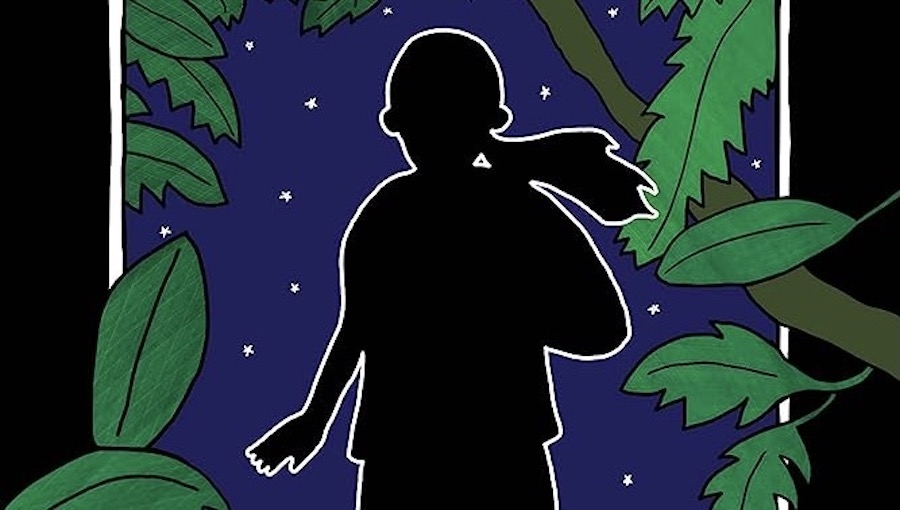The following is an interview with Tracy White regarding the upcoming release of the graphic novel, Unaccompanied: Stories of Brave Teenagers Seeking Asylum, through Street Noise. In this interview, Fanbase Press Editor-in-Chief Barbra Dillon chats with White about her inspiration for and creative process behind bringing the project, what she hopes that readers may take away from the story, how readers can donate to organizations which support unaccompanied refugee minors and immigrants, and more!
Barbra Dillon, Fanbase Press Editor-in-Chief: June will see the release of your powerful graphic novel. For those who may be unfamiliar, how would you describe the journeys depicted in this book, and what inspired you to tell these stories?
Tracy White: These teens are inspiring! They are strong, resilient, brave, and courageous. They undertake an incredibly difficult and dangerous journey to the United States, leaving their communities and families with little if any help. Once they arrive, another perilous journey through the U.S. immigration system begins. I cover both of these experiences in my book.
BD: Your creative collaborations on this project extended to organizations like the Safe Passage Project. What can you tell us about this organization, as well as your shared creative process in working with their teams to bring this project to life?
TW: The Safe Passage Project is staffed with amazing people who work tirelessly to give children a chance in the United State by providing pro bono legal counsel and other support services to this incredibly vulnerable group. I originally worked with Safe Passage on a comic for their clients to help them understand the immigration court system. The most important thing I did for that comic (and my book) was to listen and ask questions. A book like Unaccompanied literally takes a global network of individuals who are willing to share their experiences. I recorded interviews with lawyers at several non-profit organizations and wrote a skeleton script with loose thumbnails. Lawyers know the big picture of the system, but less so the daily life of their clients. To get the nuances of immigrant experiences including community/family life and even the details of how someone sits, or talks or their clothing choices, I collaborated with folks who had relevant lived experiences and expert knowledge. These people reviewed the book at various stages of development, along with my editor, a fact checker, a legal fact checker, and a DEI expert, and their feedback was incorporated. In fact, it was an integral part of the process.
BD: What makes Street Noise the perfect home for this graphic novel?
TW: Liz Frances! Liz is the founder of Street Noise and has a very specific important vision to put out into the world. She publishes books that are politically relevant, authentic, and that support marginalized voices. I can’t think of a better home for this book.
BD: At Fanbase Press, our #StoriesMatter initiative endeavors to highlight the impact that stories can have on audiences of various mediums. How do you feel that Unaccompanied will connect with and impact readers, and why do you feel that this story was important for you to bring to life?
TW: The stories in Unaccompanied are really stories of humanity. While we can’t walk in someone’s shoes, we can walk next to them, and we can relate through the emotions we all share, even though our experiences are different. The fact that #StoriesMatter is embedded in Fanbase’s mission resonated with me. I am a true believer in narrative as a way to examine and understand the world around us with compassion.
It is important to shift the negative narrative away from one of helpless victims toward the reality of brave, strong children who face almost impossible odds and dangers. Doing this fosters empathy and understanding, so they can get the support they need and deserve when seeking asylum in the United States.
BD: Are there any upcoming projects on which you are currently working that you would like to share with our readers?
TW: I’m focused on getting this book into the hands of general readers, teachers, and librarians. The book has a study guide written by two deeply knowledgeable teachers that can be used in schools or book clubs. I’ve included a broad reading list, as well, so people can find out more about the history and background of some of the countries highlighted in the book.
I am also a teacher and have put together workshops that I want to bring into classrooms, libraries, and other spaces interested in how to create and do research for non-fiction graphic novels. More information is available at www.traced.com/workshops.
BD: For those who may be interested in donating to organizations which support unaccompanied refugee minors and immigrants, are there any particular organizations that you would like to highlight?
TW: There are many organizations doing amazing work on the local and national level. The ones I worked directly with are:
The Safe Passage Project www.safepassageproject.org
Catholic Charities catholiccharitiesny.org
The Door www.door.org
The Minority Humanitarian Foundation www.minorityhumanitarianfoundation.com
Jewish Family Services of San Diego www.jfssd.org
These organizations all accept donations of time and or money.
Buying Unaccompanied also supports unaccompanied refugee minors! All author proceeds made from the book goes toward supporting the non-profit organizations that work with unaccompanied refugee minors.
BD: Lastly, what is the best way for our readers to find more information about Unaccompanied and your other work?
TW: Please stop by traced.com and follow me on Instagram, Facebook, or Twitter (@tracedcomics).

